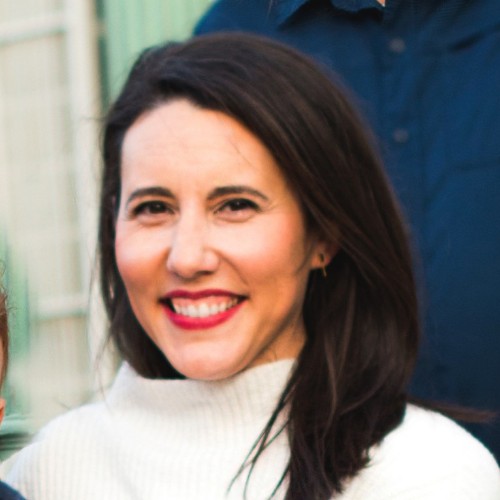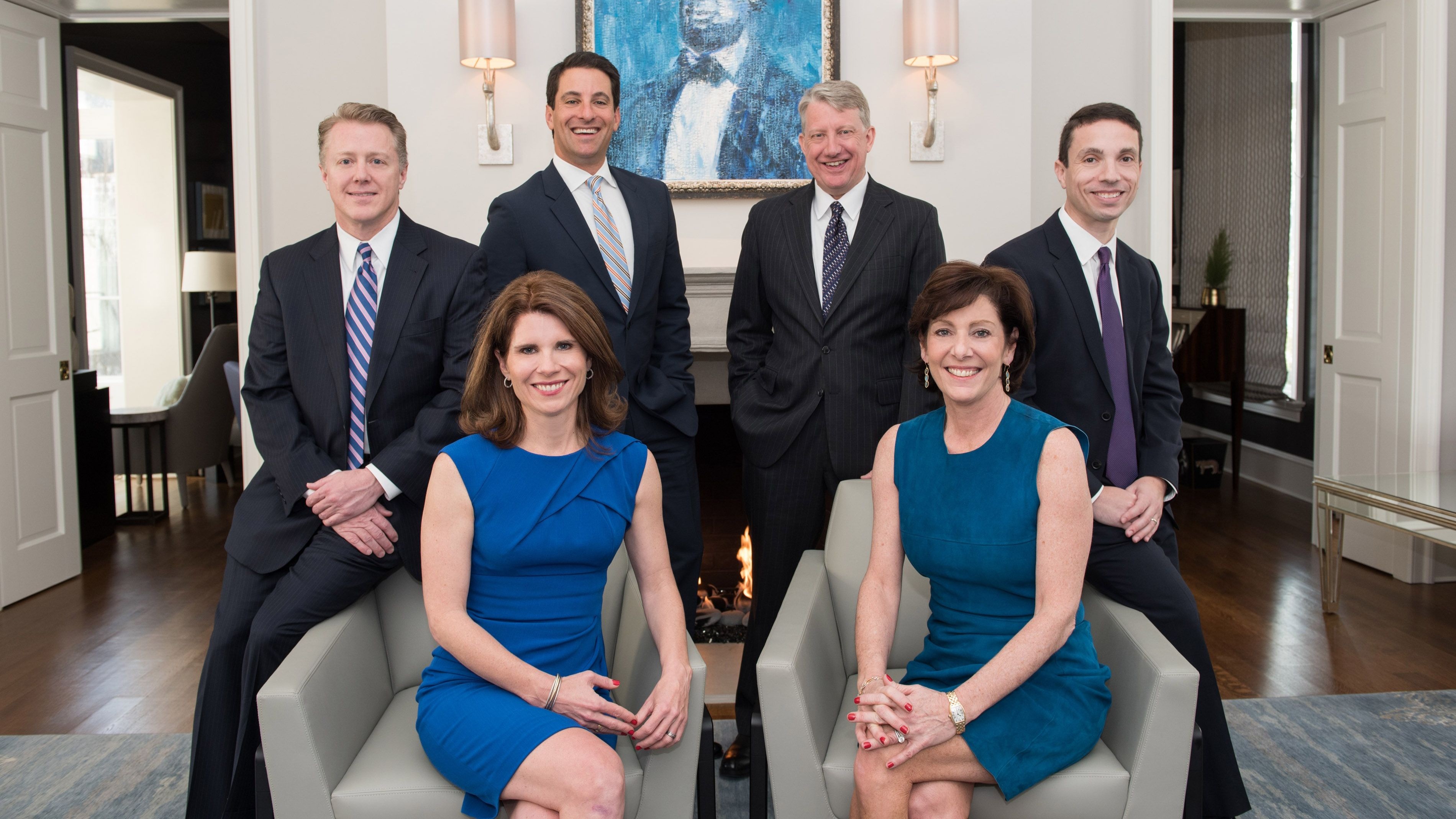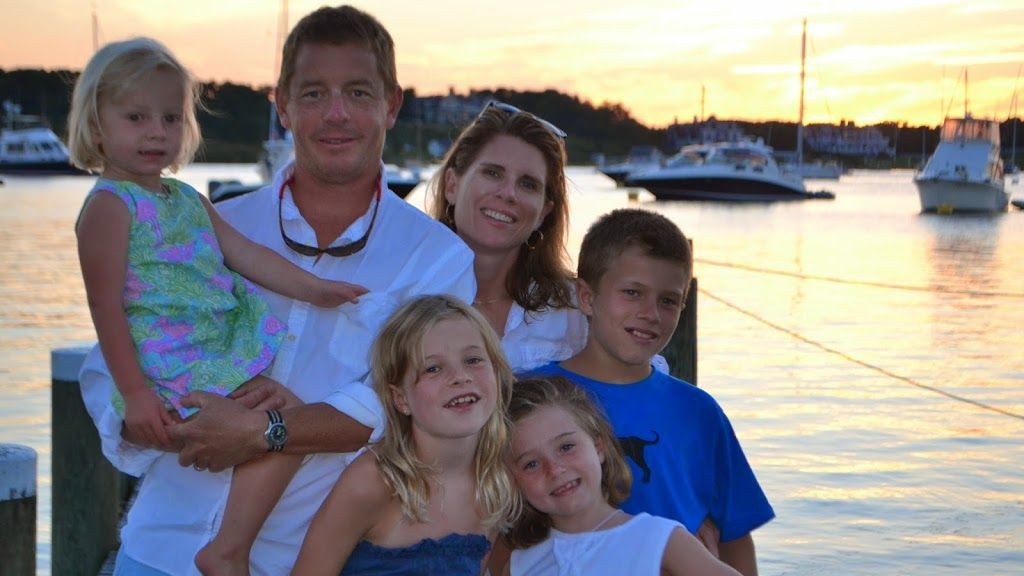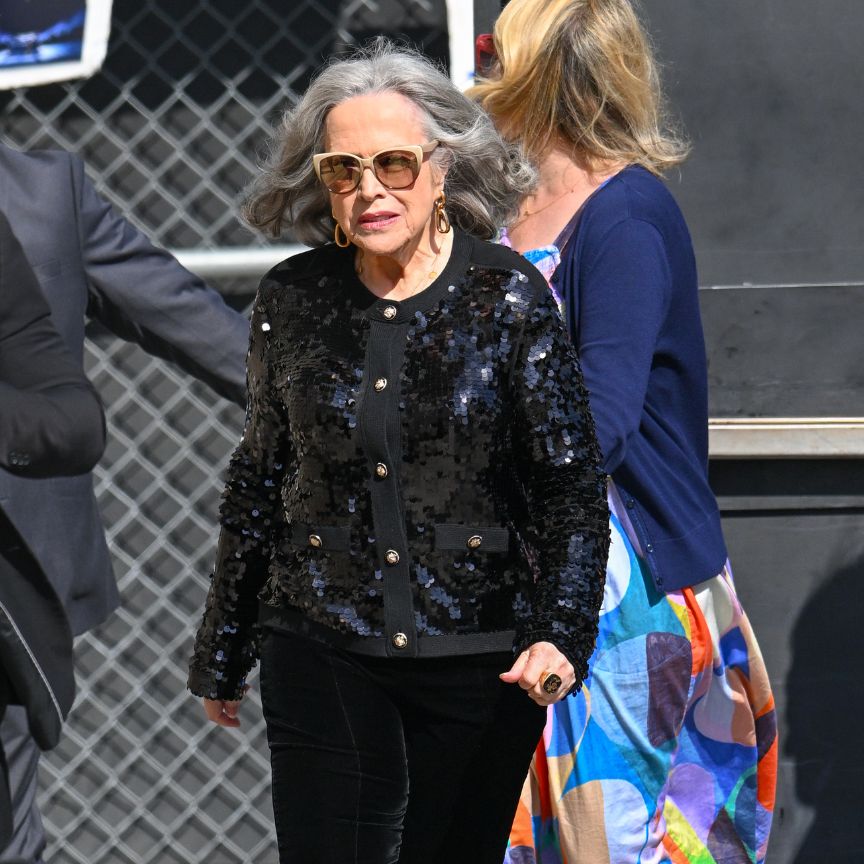These Two Best Friends Are Revolutionizing What It Means to Be a Lawyer
By starting their own super progressive firm.

Alexandra Walsh was on the defense team for one of most high-profile trials of George W. Bush's administration: United States v. Libby. The defendant was a high-ranking official in the Bush administration being investigated for interfering with a criminal investigation, and the dramatic trial made headlines across the country.
Walsh worked around the clock in the weeks leading up to the trial. And the day after closing arguments, she took a deep breath. Or rather, a series of very deep breaths: She gave birth to her third child, Frances.
A Washington Post column about the trial from 2007 reads: "Don't expect Walsh, one of Washingtonian magazine's 2006 '40 Top Lawyers Under 40,' to go off the case: She was already e-mailing about work matters a little more than an hour after giving birth."

That was exactly nine years ago and Walsh has learned a lot about integrating career and family since then. Last month, she launched Wilkinson Walsh + Eskovitz, a Washington, D.C. law firm, with fellow attorney and friend Beth Wilkinson. What makes their firm different, they say, is a "work hard and then take some time off" mentality.
"The billable hour is something we never thought was so great because it encourages people to needlessly stay at work."
The two women, who have worked together at various points in their career, came up with the idea of starting a more progressive firm, one that places a premium on time away from the office, piece by piece. After comparing professional notes and discussing familial obligations over many lunches, coffees, and drinks, one detrimental pattern stood out: unnecessarily long hours.
"When I was right out of law school and clerking, I worked really, really long hours," Walsh tells MarieClaire.com, who has four children, aged 14 to 4 years old. "Even though Beth and I went our separate ways work-wise for awhile, we stayed really good friends and she was always giving me a hard time, saying, 'Make sure to spend enough time with your kids. You'll regret not doing that and doing it will make you a better lawyer.'" (Wilkinson has a 13-year-old and 10-year-old twins.)
Stay In The Know
Get exclusive access to fashion and beauty trends, hot-off-the-press celebrity news, and more.
As their children got older, the friends were inspired to take action.

They landed on a novel concept for their industry: Starting a law firm that doesn't have billable hours. The billable hour is the measure to which most attorneys are shackled. It's how firms charge clients for their services, which means the more time a lawyer works, the more money they are earning for their firm. So, it's no wonder that you often hear lawyers quantifying success by time banked at the office.
For women, in particular, that can be an exhausting assessment considering that they log more time. According to a study of Harvard law school graduates released last year, women in the graduating class of 2000 worked an average of eight hours a week more than the men—53.4 hours to the guys' 45.4.
"The billable hour is something we never thought was so great because it encourages people to needlessly stay at work. They are counting how well you do by how many hours you bill," Wilkinson says. "We wanted to set up a better example for other women."
Law firms have come to expect as many as 2,000 billable hours per lawyer over the course of a year, says Stanford law professor and legal historian Robert W. Gordon.
"we have recognized over time that it's about working smarter not harder."
"The billable hour survives because the partners of a firm have every incentive to preserve it. By pressuring their associates to bill more hours, they ensure they're going to extract much more from the associates and the firm profits," Gordon says. "It's a relatively easy way of computing the reasonable value of a lawyer's services for billing clients. It's a useful if rather crude instrument."
Walsh, Wilkinson, and their five other fellow partners (who have over 15 children among them) are ditching the old way in favor of alternative fees, holding back a portion and, if they win, the firm gets that part of the fee plus a bonus.
The more results-oriented atmosphere has proved to be beneficial for everyone. Walsh and Wilkinson encourage their 30 employees to work as hard as they need to in order to get their jobs done, but when a big project is finished, to take time off (whether it's spending time with kids or pursuing a passion like surfing). Their office is also not the type of place where employees are preoccupied with who is the first in the office or the last out at the end of the day either. In fact, Walsh says she often does her best brief-writing in her son's bedroom on the third-floor of their home.

But Walsh wants to be clear: "We didn't start the firm to slow down in terms of work. We've got six trials this year. We've got a lot going on. But we have recognized over time that it's about working smarter not harder. Billing a ton of hours doesn't necessarily mean you're serving your clients well."
To prove this theory, Wilkinson did her own professional experiment 10 years ago. When she was working on trials, she would generally work through the weekends to prepare. But when she became pregnant with her twins, while also caring for a 3-year-old, she decided to try to reclaim those precious weekend hours—and she worked better.
"I started to go home every weekend, and when I started trying cases again, I was competing against a lot of men who would never go home on the weekends. I just decided that I could do it, that I had confidence in my ability to try the case, that I would go home on Friday night," Wilkinson says. "I ended up winning the first case after I did that and clients were fine with it."
Rigid workplace schedules are often blamed for making it difficult for primary caregivers, who are mostly women, to return to work after having kids. As Sheryl Sandberg writes in Lean In: "43 percent of highly qualified women with children are leaving careers or off-ramping for a period of time."
Walsh and Wilkinson advocate that having more women in leadership positions has the capacity to change some of these more standard, archaic work policies, like lack of comprehensive maternity leave.
"43 percent of highly qualified women with children are leaving careers or off-ramping for a period of time."
"We hope, with the two of us, there are more flexible policies but also just more flexible attitudes. So, for example, if someone is pregnant and they're going to have their baby this year then fine, they'll come back to work whenever it works for them," Wilkinson says. "We know because we've been doing this long enough, that eventually people figure out how to manage that and come back in. And we want those people to stay around."
Wilkinson adds that both she and Walsh are familiar with these obstacles first-hand, both as parents, but also as founding partners. Their personal credo has become their professional one: "There are times when we need more time for our families and more time for work."
Follow Marie Claire on Instagram for the latest celeb news, pretty pics, funny stuff, and an insider POV.
Kate Storey is a contributing editor at Marie Claire and writer-at-large at Esquire magazine, where she covers culture and politics. Kate's writing has appeared in ELLE, Harper's BAZAAR, Town & Country, and Cosmopolitan, and her first book comes out in summer 2023.
-
 Netflix's 'North of North' Transports Viewers to the Arctic Circle—Meet the Cast of Inuit Indigenous Actors
Netflix's 'North of North' Transports Viewers to the Arctic Circle—Meet the Cast of Inuit Indigenous ActorsThe new comedy follows a modern Inuk woman determined to transform her life.
By Quinci LeGardye
-
 Princess Beatrice's Husband Pays a Rare Tribute to These Royal Family Members on Instagram
Princess Beatrice's Husband Pays a Rare Tribute to These Royal Family Members on InstagramEdoardo Mapelli Mozzi shared some behind-the-scenes snaps from the F1 Grand Prix in Bahrain.
By Kristin Contino
-
 Allow Kathy Bates to Convince You to Grow Out Your Grays
Allow Kathy Bates to Convince You to Grow Out Your GraysOne look at her new style and you'll be canceling your root touch-up pronto.
By Ariel Baker
-
 Peloton’s Selena Samuela on Turning Tragedy Into Strength
Peloton’s Selena Samuela on Turning Tragedy Into StrengthBefore becoming a powerhouse cycling instructor, Selena Samuela was an immigrant trying to adjust to new environments and new versions of herself.
By Emily Tisch Sussman
-
 This Mutual Fund Firm Is Helping to Create a More Sustainable Future
This Mutual Fund Firm Is Helping to Create a More Sustainable FutureAmy Domini and her firm, Domini Impact Investments LLC, are inspiring a greater and greener world—one investor at a time.
By Sponsored
-
 Power Players Build on Success
Power Players Build on Success"The New Normal" left some brands stronger than ever. We asked then what lies ahead.
By Maria Ricapito
-
 Don't Stress! You Can Get in Good Shape Money-wise
Don't Stress! You Can Get in Good Shape Money-wiseFeatures Yes, maybe you eat paleo and have mastered crow pose, but do you practice financial wellness?
By Sallie Krawcheck
-
 The Book Club Revolution
The Book Club RevolutionLots of women are voracious readers. Other women are capitalizing on that.
By Lily Herman
-
 The Future of Women and Work
The Future of Women and WorkThe pandemic has completely upended how we do our jobs. This is Marie Claire's guide to navigating your career in a COVID-19 world.
By Megan DiTrolio
-
 Black-Owned Coworking Spaces Are Providing a Safe Haven for POC
Black-Owned Coworking Spaces Are Providing a Safe Haven for POCFor people of color, many of whom prefer to WFH, inclusive coworking spaces don't just offer a place to work—they cultivate community.
By Megan DiTrolio
-
 Where Did All My Work Friends Go?
Where Did All My Work Friends Go?The pandemic has forced our work friendships to evolve. Will they ever be the same?
By Rachel Epstein